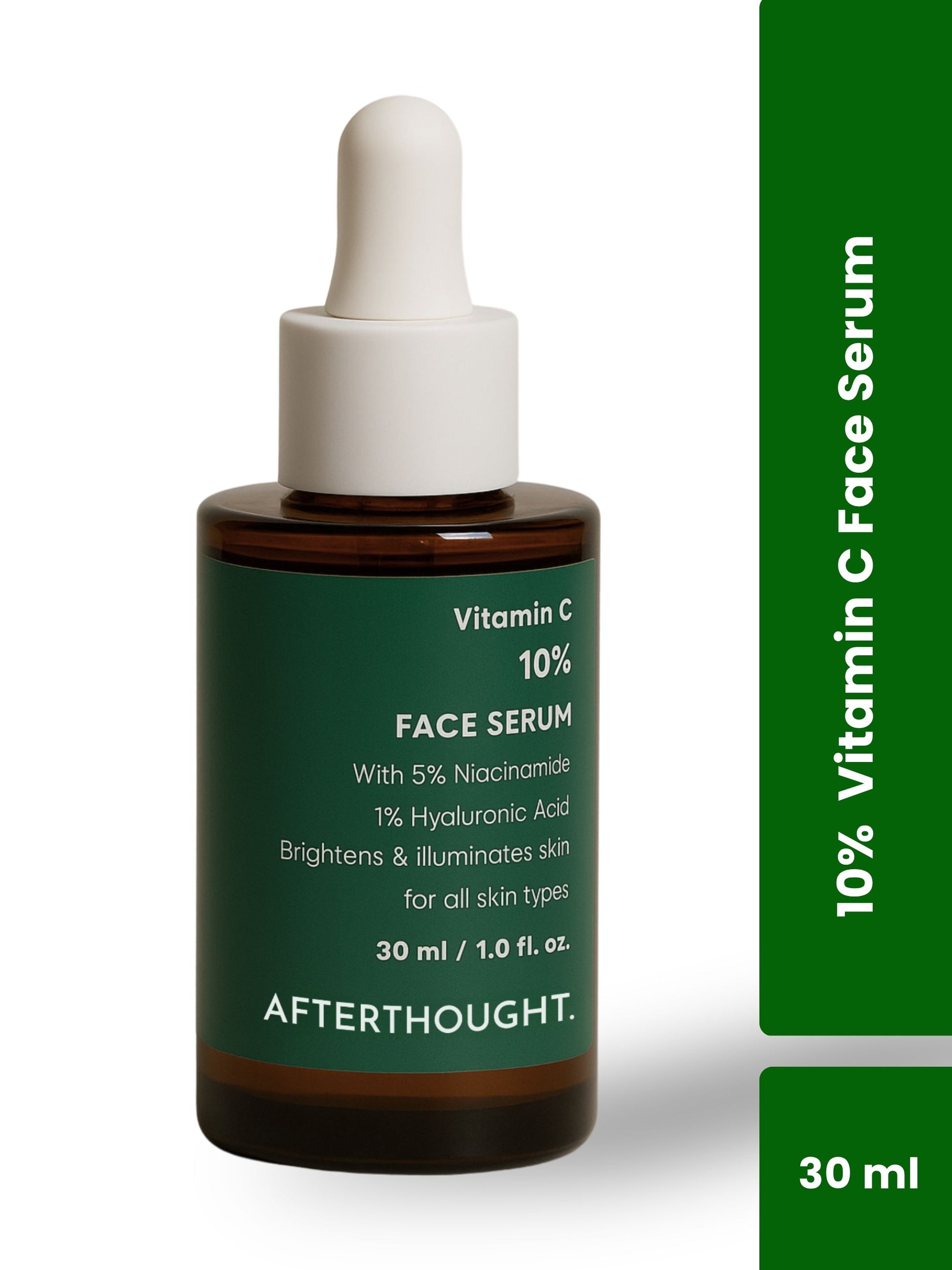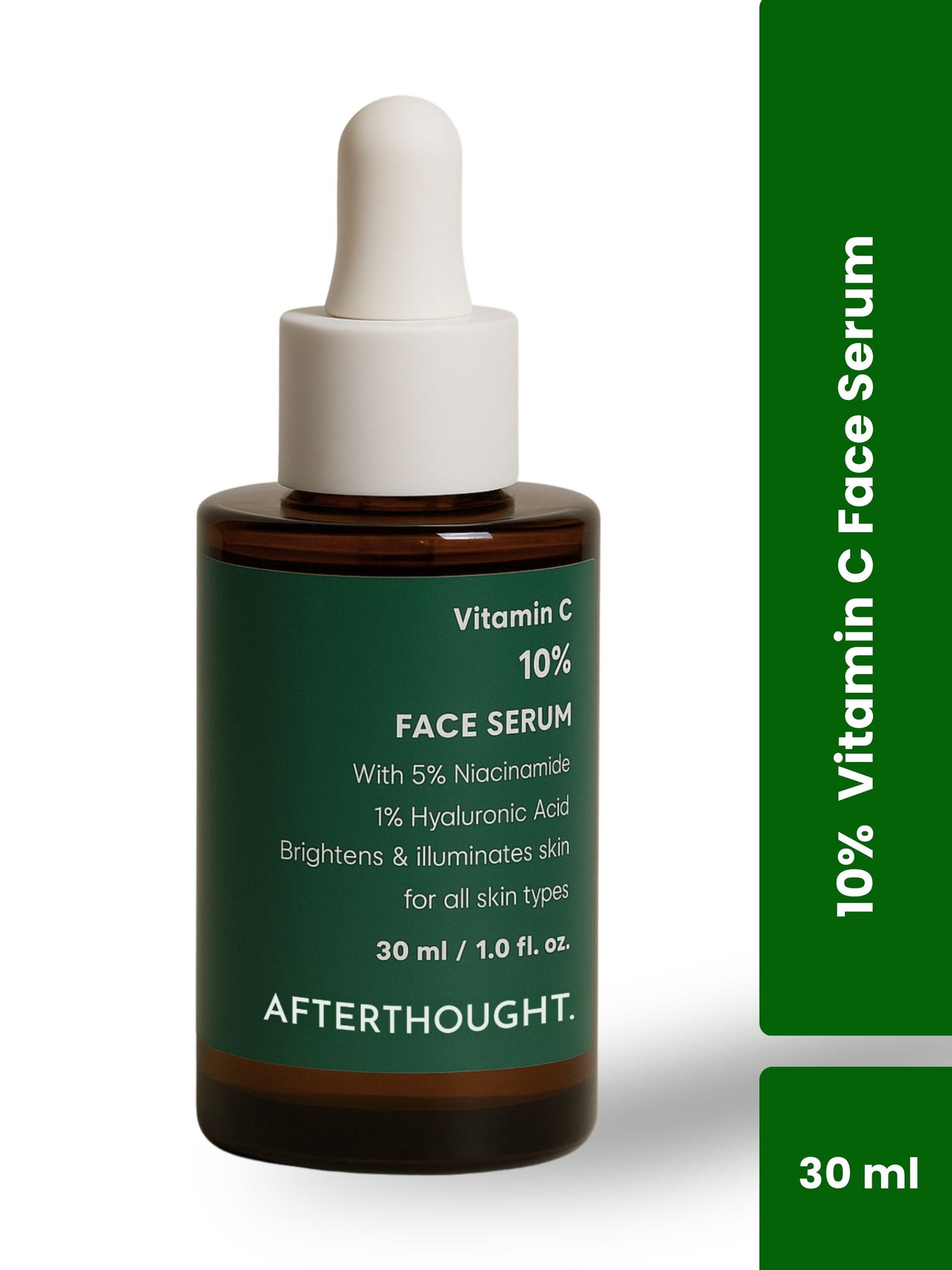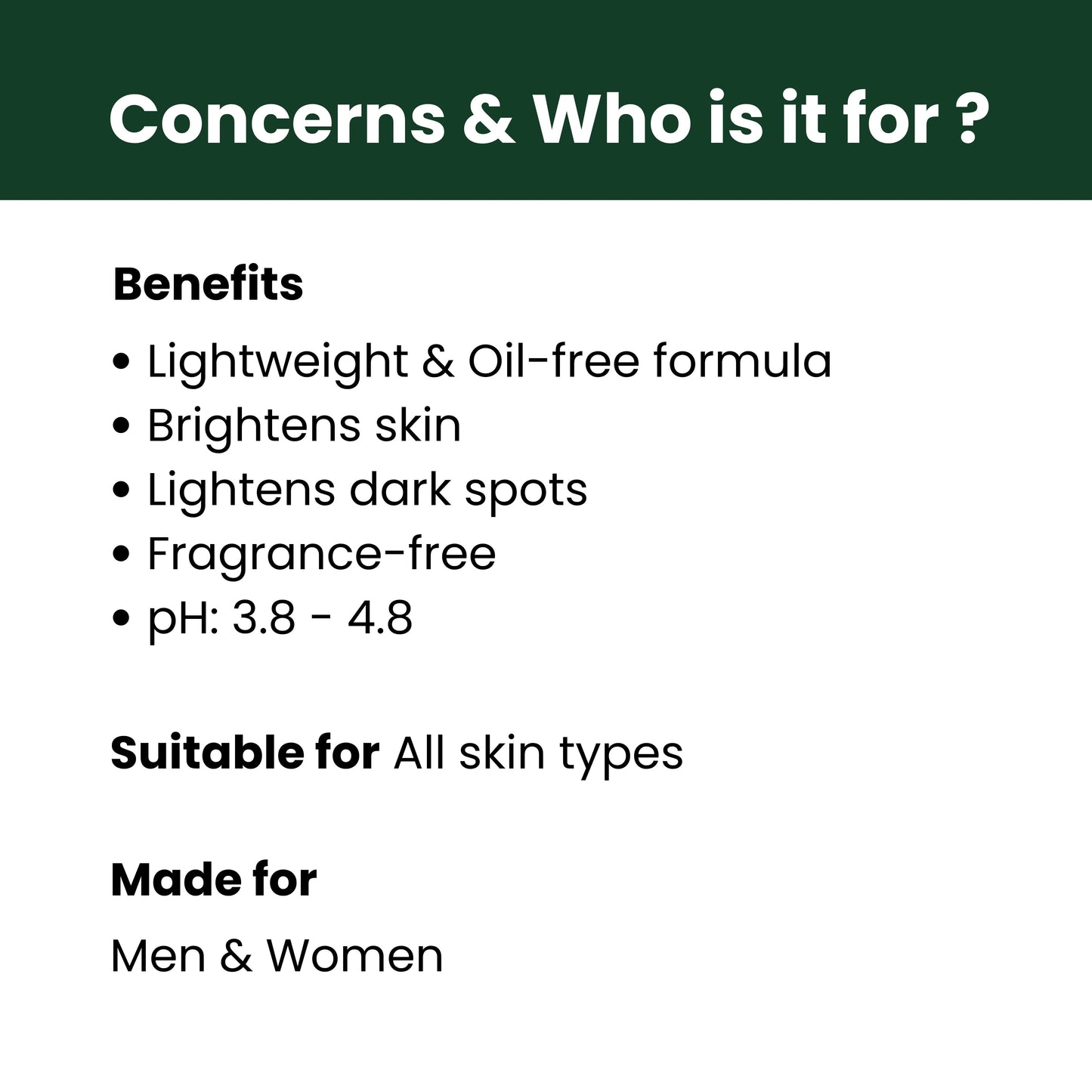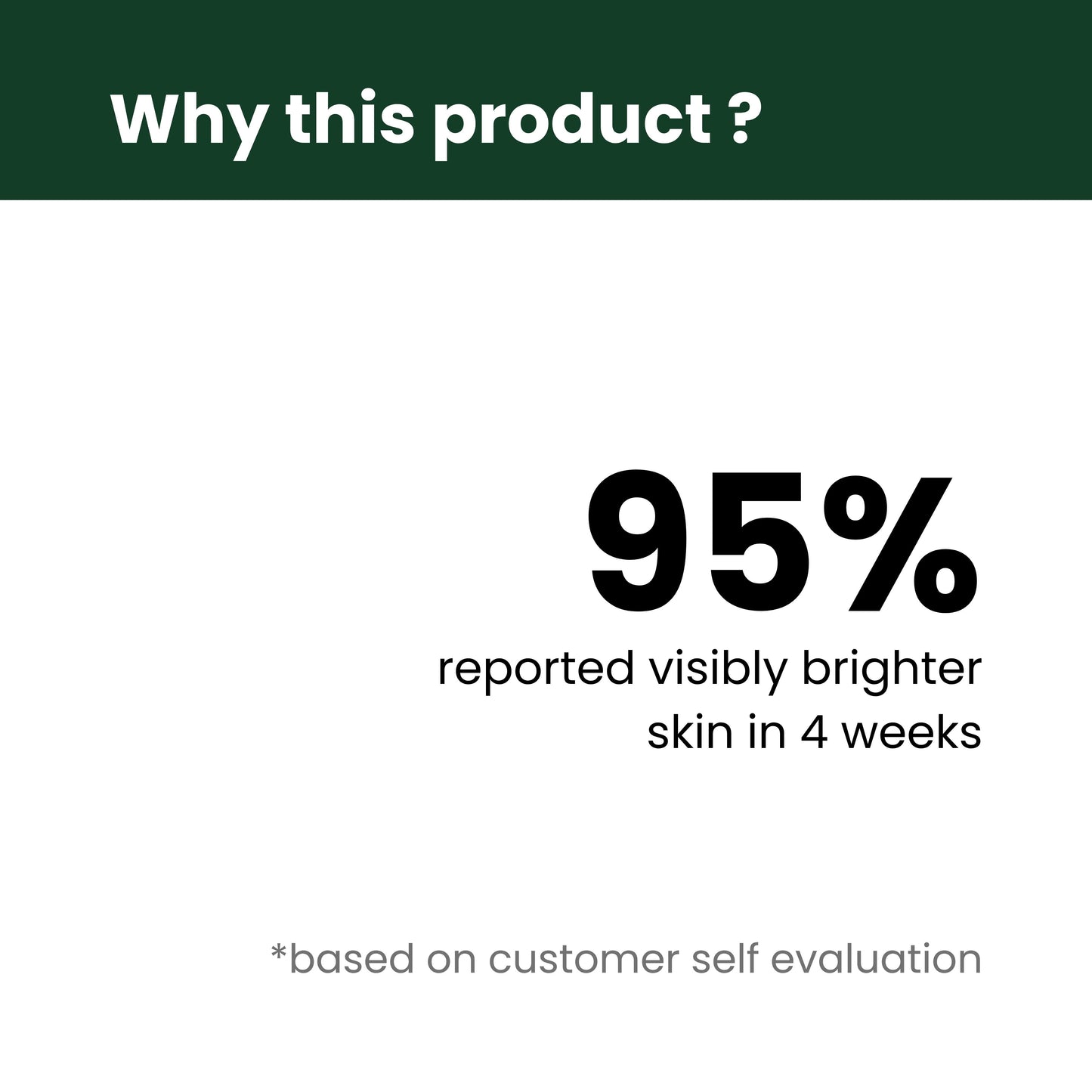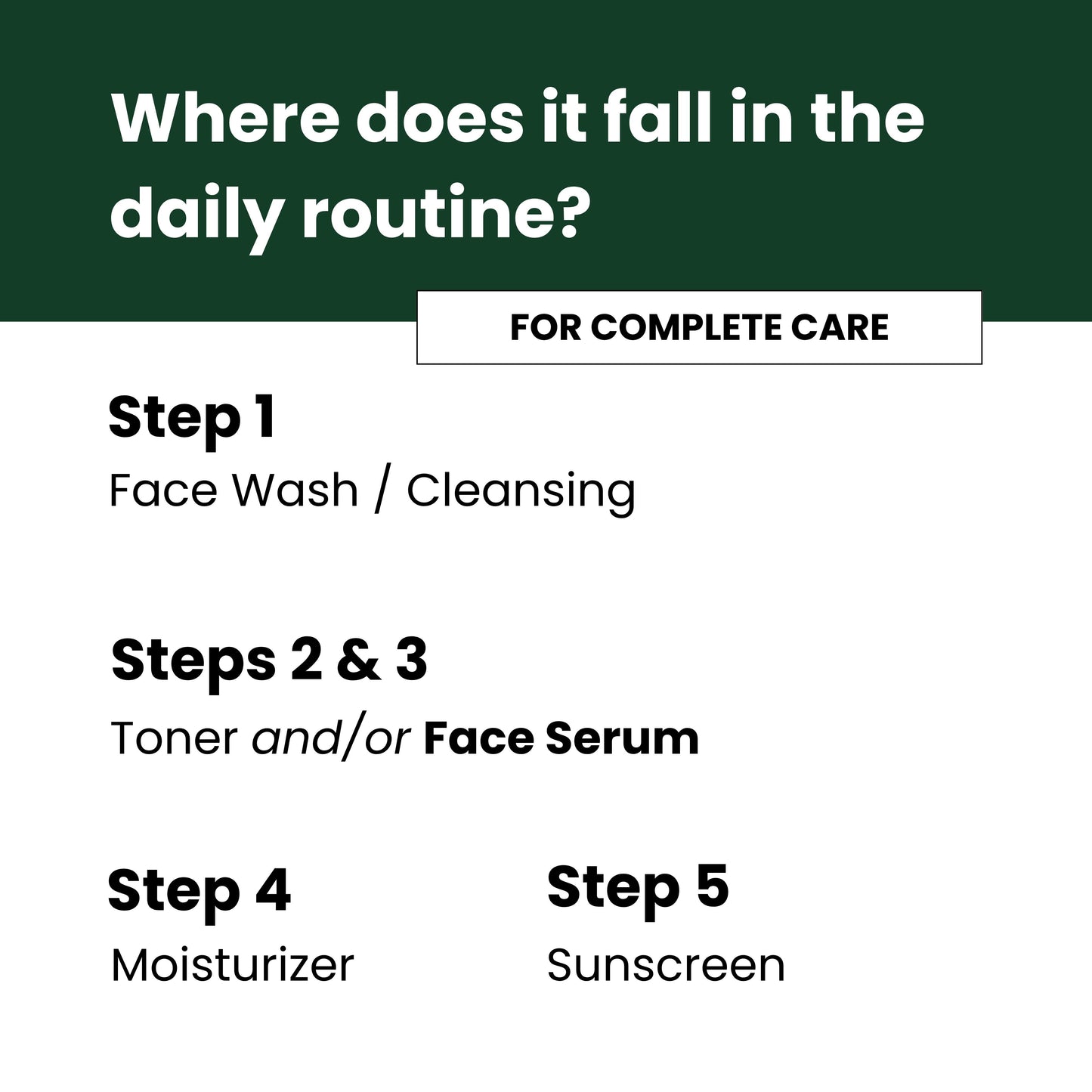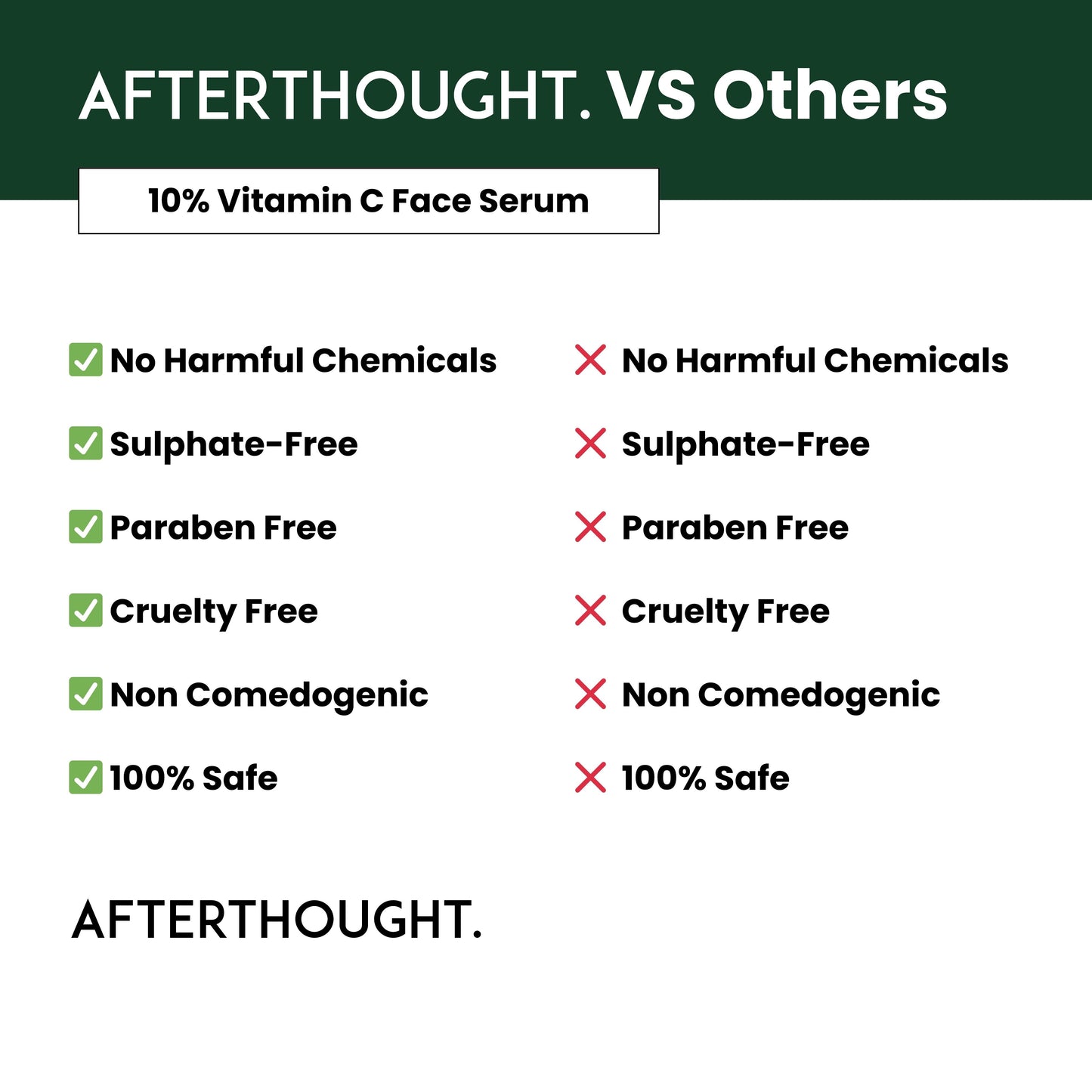What Does Vitamin C Serum Do For Your Face?
Welcome to Afterthought. In the realm of skincare, few ingredients have garnered as much attention and acclaim as Vitamin C.
This potent antioxidant has become a cornerstone in many skincare routines, lauded for its wide range of benefits.
But what exactly does Vitamin C serum do for your face? Let’s delve into the science and benefits of this skincare hero.
Understanding Vitamin C and Its Importance
Vitamin C, also known as ascorbic acid, is a powerful antioxidant that plays a critical role in maintaining skin health. It is found naturally in fruits and vegetables, and it is crucial for the synthesis of collagen, the structural protein that keeps your skin firm and elastic. Topical Vitamin C serums are specifically formulated to deliver concentrated amounts of this nutrient directly to the skin, enhancing its effectiveness.
The Benefits of Vitamin C Serum
Brightening the Complexion
One of the most celebrated benefits of Vitamin C serum is its ability to brighten the skin. Vitamin C inhibits the enzyme tyrosinase, which helps prevent melanin production. This process can fade hyperpigmentation, sun spots, and age spots, resulting in a more even skin tone and a radiant complexion.
Reducing Hyperpigmentation
Hyperpigmentation occurs when certain areas of the skin produce more melanin than usual, leading to dark spots and uneven skin tone. Vitamin C's melanin-inhibiting properties help to lighten these dark spots over time, promoting a more uniform skin appearance.
Boosting Collagen Production
Collagen is vital for maintaining the skin’s firmness and elasticity. As we age, collagen production naturally declines, leading to wrinkles and sagging skin. Vitamin C plays a crucial role in collagen synthesis, helping to maintain skin’s structural integrity and reduce the appearance of fine lines and wrinkles.
Protecting Against Sun Damage
Vitamin C is a potent antioxidant that can neutralize free radicals, which are unstable molecules generated by exposure to UV radiation. These free radicals can cause oxidative stress, leading to premature aging and skin damage. By neutralizing these harmful molecules, Vitamin C helps protect the skin from the damaging effects of the sun and environmental pollutants.
Reducing Redness and Inflammation
Vitamin C has anti-inflammatory properties that can help reduce redness and inflammation in the skin. This makes it beneficial for those with inflammatory skin conditions like acne and rosacea. It can calm irritated skin, leading to a more even and calmer complexion.
Enhancing Skin’s Hydration
While Vitamin C itself is not a hydrating ingredient, it can enhance the effectiveness of your moisturizer. By strengthening the skin’s barrier, Vitamin C helps retain moisture, keeping the skin plump and hydrated. This can be particularly beneficial in preventing dry skin and maintaining overall skin health.
Accelerating Healing
Vitamin C can speed up the skin’s natural healing process. This is especially useful for those with acne-prone skin, as it can help heal blemishes and reduce the risk of scarring. Its regenerative properties also aid in the repair of damaged skin, promoting a smoother and healthier appearance.
How to Use Vitamin C Serum Effectively
To maximize the benefits of Vitamin C serum, follow these steps:
- Choose the Right Concentration: For beginners, a concentration of 10% is effective yet gentle. More experienced users can opt for concentrations up to 20%.
- Check the pH Level: Vitamin C serums are most effective at a pH level of 3.5 or lower. This ensures better absorption and efficacy.
- Apply Correctly: Apply a few drops of serum to your clean, dry face in the morning before moisturizer and sunscreen. Vitamin C helps protect your skin from free radicals throughout the day.
- Store Properly: Vitamin C is sensitive to light and air, which can degrade its potency. Store your serum in a dark, cool place, and ensure the bottle is tightly sealed.
- Be Consistent: Consistency is key. Use your Vitamin C serum daily to see significant improvements over time.
Potential Side Effects and Precautions
While Vitamin C serum is generally safe for most skin types, some individuals may experience irritation, especially those with sensitive skin. Start with a lower concentration to gauge your skin’s reaction, and always perform a patch test before applying the serum to your face. If you experience persistent redness, itching, or discomfort, discontinue use and consult a dermatologist.
Conclusion
Vitamin C serum is a versatile and powerful addition to any skincare routine. Its ability to brighten, protect, and rejuvenate the skin makes it a standout ingredient in the world of skincare. By understanding its benefits and how to use it effectively, you can harness the full potential of Vitamin C to achieve a healthier, more radiant complexion. Remember, the journey to beautiful skin is a marathon, not a sprint, so be patient and consistent with your skincare regimen.


